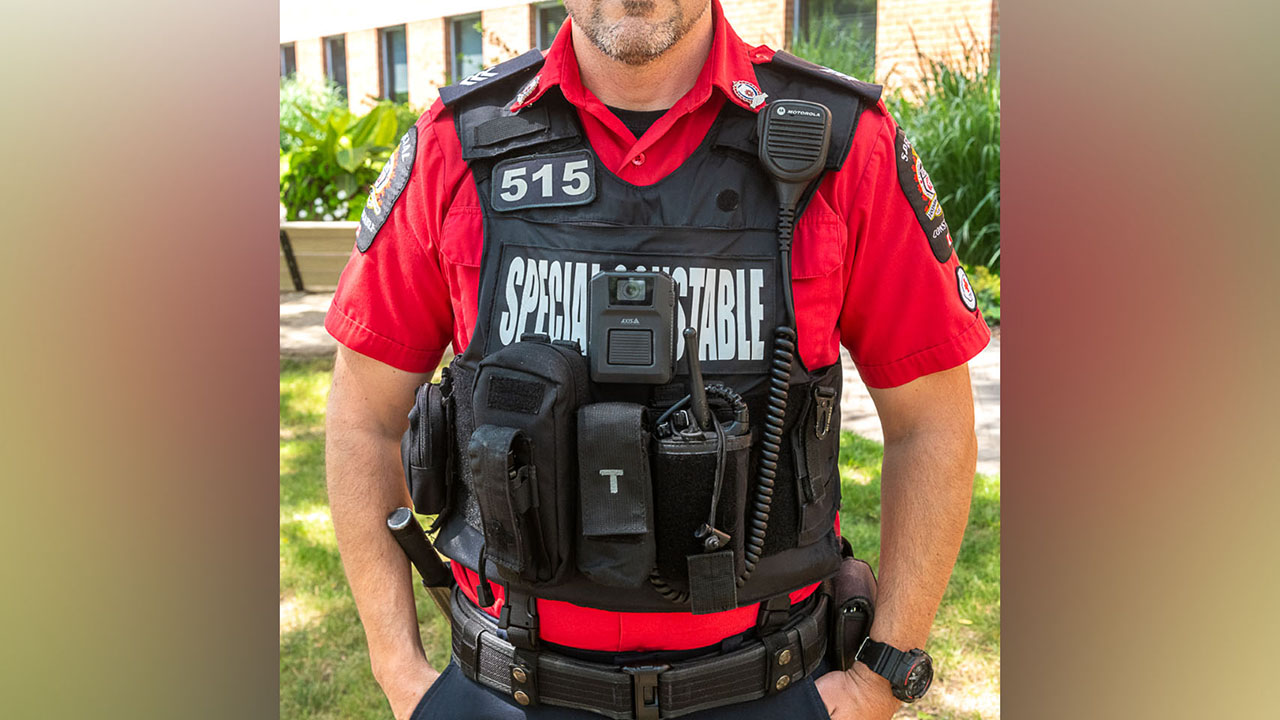Campus security now wearing body cams
 CREDIT: FANSHAWE COLLEGE
CREDIT: FANSHAWE COLLEGEFollowing a successful pilot project over the summer, campus security officers will continue to wear body cameras throughout the fall semester.
As part of a pilot program, security officers at Fanshawe College have been wearing body cameras over the summer. Following successful results over the past three months, officers will continue to wear the devices in the fall, coinciding with the school year.
Body cameras, or body cams, are small devices attached to the officers’ uniforms. At the beginning of each shift, they will put the cameras into operation, and later the cameras will be returned and the recordings will be uploaded to a secure server. These images will only be used for security purposes. For example, the photos could be analyzed after an incident to cross-check officers’ statements. They could also be used to teach personnel how to respond to situations they are likely to encounter.
But that’s not the only benefit; according a media release by Campus Security Services at Fanshawe, the cameras “not only provide an additional layer of security but will also help to foster trust and accountability between our officers and the vibrant campus communities they serve.”
Body-worn cameras can also make officers feel safer and more secure, as they will have more confidence because the device is recording.
“The information obtained from a video is worth 10 times that of a picture,” Ed Pimentel, the Manager of Campus Security Services said.
“The primary use of a bodyworn camera is to collect evidence by accurately recording audio and video of the interactions between Special Constables and the public,” Jeff Cook, Acting Assistant Manager of Campus Security Services said in a statement.
However, while incorporating this new technology, Campus Security Services said it will remain dedicated to upholding privacy standards and maintaining compliance with applicable regulations.
“The decision to implement this technology is rooted in industry best practices and our unwavering commitment to the well-being of students, faculty and staff,” Cook added. “We are excited to embark on this innovative effort to provide an even more secure and welcoming campus environment for all.”















